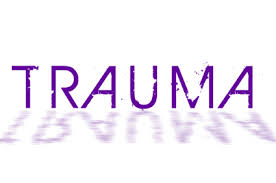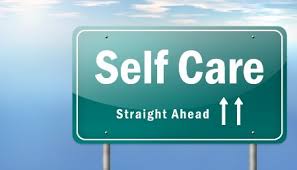If you are alive and breathing, there is no doubt you are aware of the many changes that have been abruptly taking place in the world around us. Anytime there is a seismic shift in our environment, whether it be a natural disaster or a shift in political leadership, it can have a significant impact on many people. If you aren’t sure what I’m talking about, then just take a brief scroll through your social media news feed. The evidence of major shifts in our world is unavoidable. As therapists, we know that change is always difficult.  Even the most well adjusted individuals experience some challenges when major changes occur in their life. Consider that many individuals face other life challenges on top of dealing with an ever changing world, and you might run into a great deal of fear, anxiety, even panic and terror.
Even the most well adjusted individuals experience some challenges when major changes occur in their life. Consider that many individuals face other life challenges on top of dealing with an ever changing world, and you might run into a great deal of fear, anxiety, even panic and terror.
Maybe you have observed a friend or family member verbalizing their outrage or real fear of some of the things going on around us. Perhaps you could not quite understand the extent of their concern. In fact, you may have chalked it up to them being dramatic, or really over-reacting, even lacking an understanding of the facts of the issue. Although these elements can be true, as therapists, and experts in trauma care, we know that elevated emotion is almost always a sign of some unresolved issue. We often refer to this using the term "unresolved trauma" as well. These unresolved issues are often held in a person’s unconscious, and may manifest through more surface level issues.
As an important side note to understand for the context of this blog post, is that we all have unresolved trauma of varying degrees. For the purpose of this blog post, we are operating under the trauma definition as anything a person experiences that is less than nurturing (originally coined by Pia Mellody). Trauma is defined by a person’s internal subjective experience and not by some societal scale, so some people could experience the same event and perceive it as traumatic while others may not. In these cases, both individuals would be correct as it relates to their perceptions in light and relative to their life experiences.
Today more than ever, clients are often presenting in our offices with extreme distress due to the shifting social, political, and economic climate.  Through further questioning, however, we are often able to help clients connect this distress to previous traumatic experiences that may still be “sore spots”. This is not to say that the current situation mirrors their previous trauma, but perhaps triggers similar feelings that may leave a person feeling high emotional, and perhaps struggling to use their typical coping resources to work through this distress. This is an important component to keep in mind as we are interacting and responding to others distress around us. This blog post addresses some current considerations to keep in mind in understanding both ourselves and others around us during changing and uncertain times.
Through further questioning, however, we are often able to help clients connect this distress to previous traumatic experiences that may still be “sore spots”. This is not to say that the current situation mirrors their previous trauma, but perhaps triggers similar feelings that may leave a person feeling high emotional, and perhaps struggling to use their typical coping resources to work through this distress. This is an important component to keep in mind as we are interacting and responding to others distress around us. This blog post addresses some current considerations to keep in mind in understanding both ourselves and others around us during changing and uncertain times.
One of the first things to keep in mind is that people struggle to think and respond logically when they are in highly emotionally charged situations. This is pure brain science. When we are in a reactionary state, our pre-frontal cortex (the decision making part of our brain) is overridden by the limbic (feelings, attachments, and drives) part of the brain.  When we are responding from the feelings part of our brain this is because our brain has signaled that there is either real threat or perceived threat. As humans, we tend to respond in one of three ways – fight, flight, or freeze. In these moments, despite our ability to cognitively reason or think clearly, we are unable to respond in any other way. In fact, it’s not until the feeling of threat (or even perceived threat) has passed that we are able to respond rationally. So, what do you do in these situations?
When we are responding from the feelings part of our brain this is because our brain has signaled that there is either real threat or perceived threat. As humans, we tend to respond in one of three ways – fight, flight, or freeze. In these moments, despite our ability to cognitively reason or think clearly, we are unable to respond in any other way. In fact, it’s not until the feeling of threat (or even perceived threat) has passed that we are able to respond rationally. So, what do you do in these situations?
Whether it is you, or a friend or family member, you must attend to the feeling first. If it is fear, then acknowledging that (e.g. “It seems that you are really frightened. None of us like to feel that scared.).  Secondly, remember that this is likely a relationship that is important to you, so extend support. Simply, asking how you can be supportive, and if there is anything you can do to help can go a long way. In a state of fear and panic, this can help us feel like we are not alone which can have a major impact in diffusing anxiety.
Secondly, remember that this is likely a relationship that is important to you, so extend support. Simply, asking how you can be supportive, and if there is anything you can do to help can go a long way. In a state of fear and panic, this can help us feel like we are not alone which can have a major impact in diffusing anxiety.